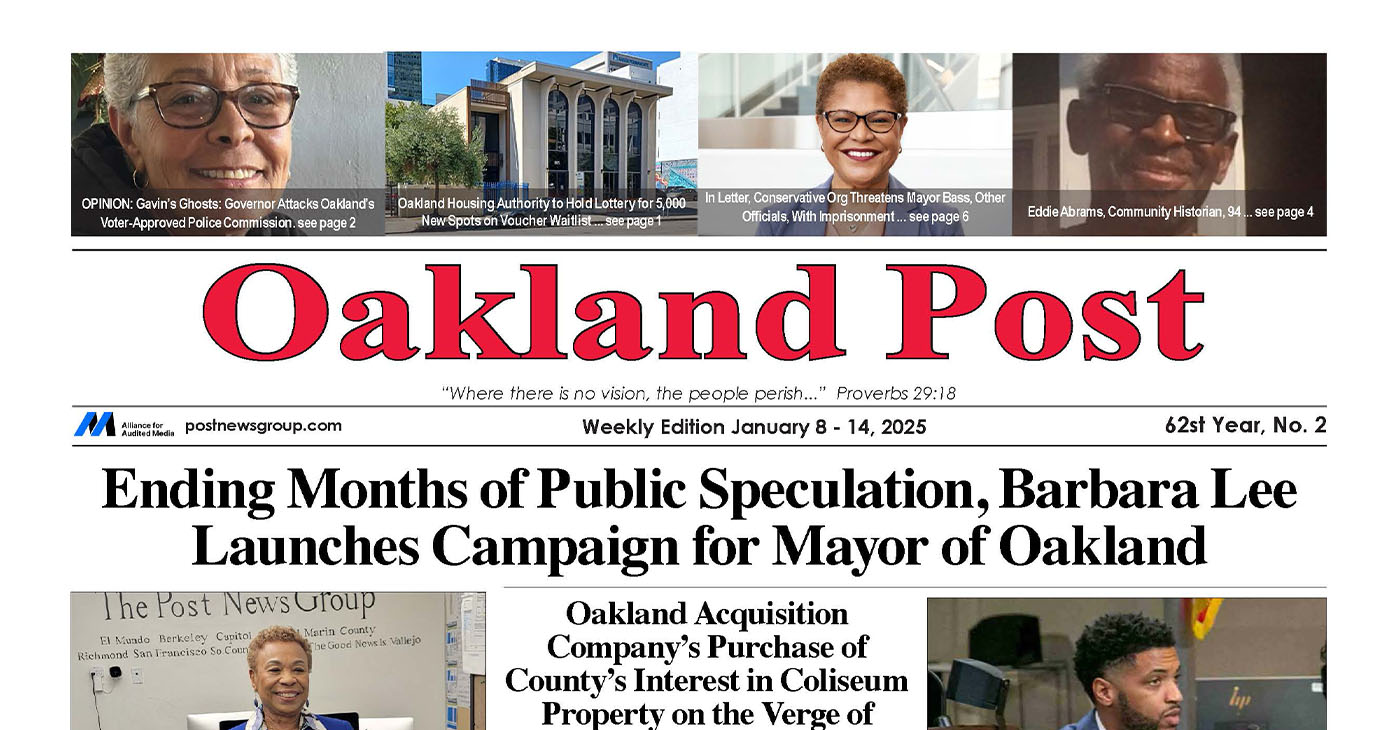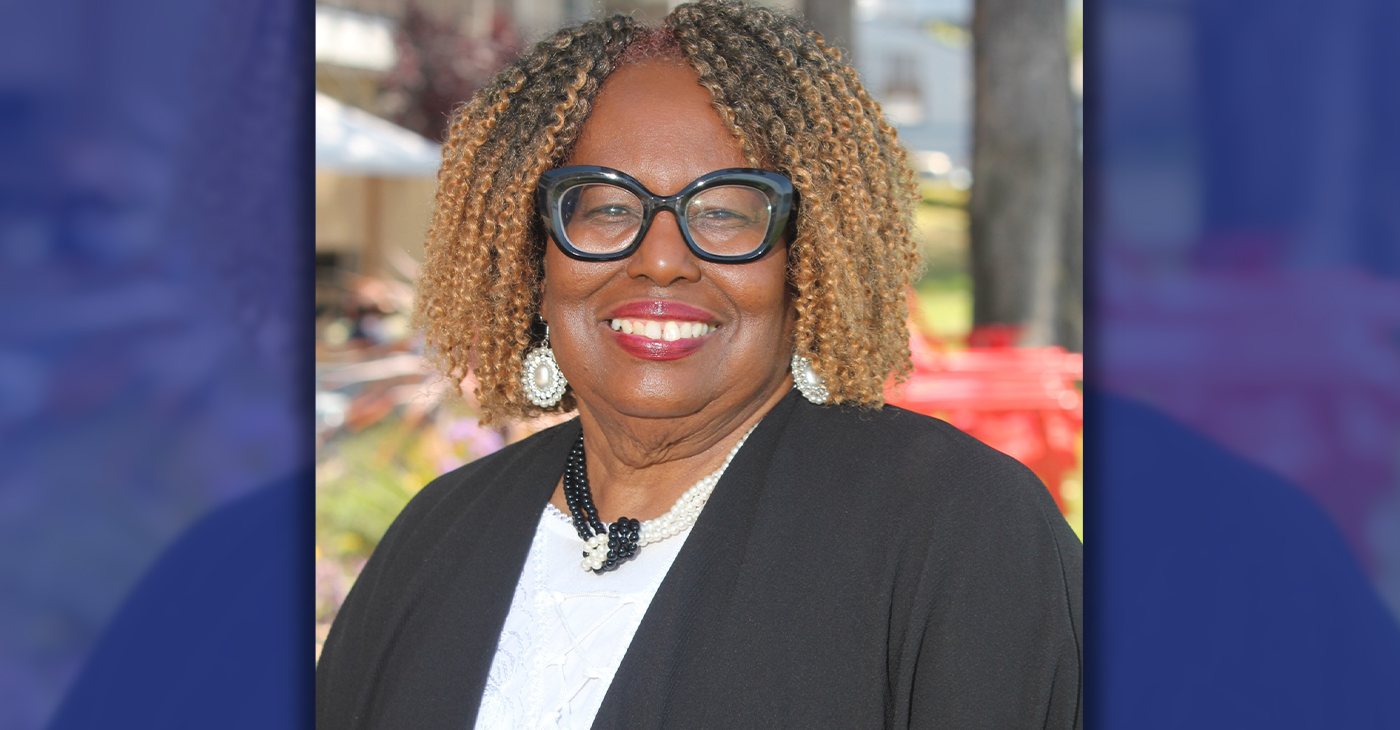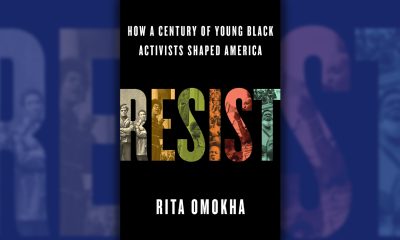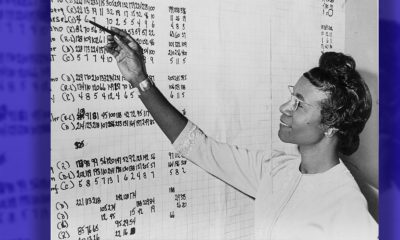Black History
COMMENTARY: Four Hundred Years and We Still Ain’t Clear:
NNPA NEWSWIRE — “…there is this misguided group of Afrodescendants, who are throwing shade at those who are not ‘American descendants of slaves’ ADOS. Their shade is an odd version of the “am I Black enough for you” game that some folks ran against President Barack Obama, and are now running against Presidential candidates Kamala Harris and Corey Booker. “
By Julianne Malveaux
According to some historians, Afrodescendents first entered these united states in 1619 off the coast of Virginia. If we believe that narrative, Afrodescendents have been in this country for 400 years. If the people who were kidnapped and brought here had to tell the story, would they tell the same one? Would they say that we came before Columbus? That some of us might have been here even longer? There were captured Africans that came from the mother continent in 1619, but also, thanks to the transatlantic slave trade, Africans here who had come from Bermuda, Jamaica, and other places.
Why is this relevant? Because there is this misguided group of Afrodescendants, who are throwing shade at those who are not “American descendants of slaves” ADOS. Their shade is an odd version of the “am I Black enough for you” game that some folks ran against President Barack Obama, and are now running against Presidential candidates Kamala Harris and Corey Booker. What is Black enough, when we, Afrodescendant people, all have enslavement in our background? Let’s make it plain. Europeans went to the African continents, kidnapped people (sometimes with African acquiescence), brought them to the Western Hemisphere, and sold us. Goods and people flowed between England (or New England, the Americas, and Africa), including sugar, tobacco, manufactured products, guns and humans. Understand that everyone in the triangle was affected and that enslaved people were freely traded between the United States and other parts of the Americas!
I am not sure what kinds of warped brains dreamed up the realities of enslavement and the ways that a minority in the South was able to control a majority. The laws that managed enslavement included laws that prevented literacy, ownership, and much else. The laws often detailed the terms of punishment if restrictive conditions were breached. A North Carolina law said, “teaching slaves to read and write, tends to excite dissatisfaction in their minds, and to produce insurrection and rebellion.” Disobeying this law was punishable by thirty-nine lashes or imprisonment for a free Black person, or a fine of two hundred dollars then, or about $5000 now. People violated the laws, of course, but the warped sensibility that prohibited the dissemination of knowledge is the basis for many sick stereotypes, such as “if you want to hide something from a Black person, put it in a book.”
Fast-forward four hundred years, or even two. Why are teachers in Louden County, Virginia, forcing fifth and sixth-grade students to simulate enslavement with an obstacle course they called “The Underground Railroad”? Why were many of these students Afrodescendents? Why are the leaders of the school silent about the discipline that was ordered on the rogue teachers who took it upon their ignorant selves to construct such an exercise? Why has David Stewart, the principal of the Madison Trust School in Louden County, sent out a vapid apology for a “culturally insensitive” exercise, and not a more strongly worded condemnation of the racism implicit in this nonsense.
We have been here at least 400 years, and still, some folks aren’t clear about the ways enslavement has shaped our nation. In Virginia, where both the governor and the Attorney General (two of the top three elected officials in the state) have admitted to masquerading in Blackface, albeit thirty-odd years ago, teachers don’t see anything wrong with subjecting Black students to a reenactment of enslavement. Oh, they said they were teaching “teamwork.” Really.
We have been here at least 400 years, and our nation is not yet clear about its flawed foundations. There would be no house at 1600 Pennsylvania Avenue, which should not be called the White House, but the House that Enslaved People Built, were it not for the labor of kidnapped people and their descendants. There would be no banking system if enslaved people were not used as collateral for European devilment. There would be no insurance industry were it not for the enslaved. But in our collective ignorance allows us, all of us, African Americans, European Americans, and others, to live in denial, pretending that there is fairness is a racist, patriarchal, predatory, capitalist society.
We have been here at least 400 years, but we still aren’t clear about the nonsense and exploitation that affects and infuses our very foundation. Our entire nation needs to go back to school to learn some history. But there is a special place in hell for teachers in Louden County, Virginia who think that enslavement is some kind of game!
Julianne Malveaux is an author and economist. Her latest book “Are We Better Off? Race, Obama and Public Policy” is available via www.amazon.com for booking, wholesale inquiries or for more info visitwww.juliannemalveaux.com
Activism
Oakland Post: Week of January 8 – 14, 2025
The printed Weekly Edition of the Oakland Post: Week of January 8 – 14, 2025

To enlarge your view of this issue, use the slider, magnifying glass icon or full page icon in the lower right corner of the browser window.
Activism
Barbara Lee Launches Campaign for Mayor of Oakland
“At this critical moment, we must not be a city divided, but a community united,” she Lee. “If elected I will bring my hands-on leadership, new ideas and decades of experience in identifying billions in resources for our great city, so all residents and businesses are stronger and safer and our community has optimism and confidence in Oakland’s future.”

By Post Staff
Barbara Lee on Wednesday morning formally announced her candidacy for Mayor in Oakland’s April 15 special election.
“Time and time again, Oaklanders have faced our toughest obstacles by uniting to meet our challenges,” said Lee.
“At this critical moment, we must not be a city divided but a community united,” she said. “If elected, I will bring my hands-on leadership, new ideas, and decades of experience in identifying billions in resources for our great city so all residents and businesses are stronger and safer and our community has optimism and confidence in Oakland’s future.”
“As Mayor, I’ll address our homelessness crisis, prioritize comprehensive public safety and mental health services, and lead with fiscal responsibility to deliver the core City services residents and business owners deserve. Let’s do this – together.”
“I’ve never shied away from a challenge,” said Lee. “I’m always ready to fight for Oakland.”
Watch her campaign video here, which is online at BarbaraLee4Oakland.com
Activism
Oakland NAACP President Stands on the Frontlines for Equity
With education as a cornerstone, Adams emphasized the importance of youth having access to quality kindergarten through 12th-grade education along with college or vocational programming beyond high school. “I feel that it’s so important for our children to get a good education in K-12th grade, along with the colleges of their choice, especially with the HBCU’s (Historically Black Colleges and Universities).”

By Carla Thomas
For Cynthia Adams, president of the Oakland chapter of the NAACP, fighting for the rights of Black people comes naturally. With southern roots in Arkansas, Adams experienced firsthand the injustice and unfairness of racism.
“Growing up in the Jim Crow South, I experienced the unfair treatment of people of color and how faith can inspire communities to bring about positive and long-lasting change,” said Adams. Adams says a combination of her family and faith has kept her strong in the face of adversity and inspired her life’s work of advocacy.
Adams chose education as a career path — and a means to achieve equity and overcome racism. She earned her bachelor’s degree at the University of Arkansas at Pine Bluff and later received an advanced degree from California State East Bay.
Adams’ experience as an Oakland Unified School District (OUSD) recorder, a counselor, a researcher, and a college recruiter has allowed her to be laser-focused on youth. She also served as the chairperson for the Oakland NAACP youth.
“The mission of the National Association for the Advancement of Colored People is to ensure the political, educational, social, and economic equality of rights of all persons and to eliminate race-based discrimination. We want to ensure our citizens have equal rights and opportunities without discrimination based on race.”
As a partner with the State of California’s Stop the Hate campaign, Adams says the initiative is a step in the right direction. “It’s great that our governor and state created the Stop the Hate campaign and provides resources for victims of racism and other hate crimes,” said Adams. “The racism toward Black people has increased and our children are being targeted,” she continued.
“We, at the Oakland branch, created a declaration on racism that will amplify the needs of our community to combat racism,” continued Adams. “That declaration was adopted nationally.”
Bridging communities and collaborating is also a strategy for moving society toward justice, according to Adams.
“Through the NAACP, we build connections between communities and advocate for the rights of historically marginalized and oppressed individuals,” said Adams. “Collective action is the only way to advance civil rights and promote social equity.”
With education as a cornerstone, Adams emphasized the importance of youth having access to quality kindergarten through 12th-grade education along with college or vocational programming beyond high school. “I feel that it’s so important for our children to get a good education in K-12th grade, along with the colleges of their choice, especially with the HBCU’s (Historically Black Colleges and Universities).”
By taking stands on supporting former Oakland Police Chief LeRonne Armstrong to supporting the recall of a mayor faced with a scandal that brought negative national press to the city of Oakland, Adams has always demanded more for her people, and better for Oakland, the city she calls home.
She expressed pride in the national organization’s announcement of a $200 million fund designed to empower Black funders nationwide. “We all know the health of a community begins with economics,” said Adams.
Adams says that strengthening Black businesses automatically sustains a community. “We’ve also got to educate our community on opportunities and teach our children critical thinking so that they can provide the next generation of solutions for society,” said Adams.
-

 Activism3 weeks ago
Activism3 weeks agoBooks for Ghana
-

 Arts and Culture4 weeks ago
Arts and Culture4 weeks agoPromise Marks Performs Songs of Etta James in One-Woman Show, “A Sunday Kind of Love” at the Black Repertory Theater in Berkeley
-

 Bay Area3 weeks ago
Bay Area3 weeks agoGlydways Breaking Ground on 14-Acre Demonstration Facility at Hilltop Mall
-

 Activism4 weeks ago
Activism4 weeks ago‘Donald Trump Is Not a God:’ Rep. Bennie Thompson Blasts Trump’s Call to Jail Him
-

 Activism3 weeks ago
Activism3 weeks agoLiving His Legacy: The Late Oscar Wright’s “Village” Vows to Inherit Activist’s Commitment to Education
-

 Arts and Culture3 weeks ago
Arts and Culture3 weeks agoIn ‘Affrilachia: Testimonies,’ Puts Blacks in Appalacia on the Map
-

 Alameda County3 weeks ago
Alameda County3 weeks agoAC Transit Holiday Bus Offering Free Rides Since 1963
-

 #NNPA BlackPress4 weeks ago
#NNPA BlackPress4 weeks agoCalifornia, Districts Try to Recruit and Retain Black Teachers; Advocates Say More Should Be Done





















































4 Comments